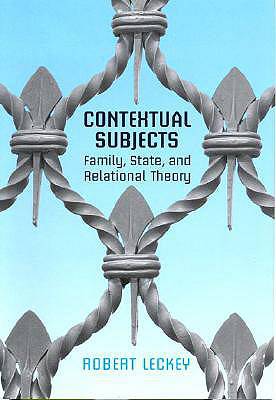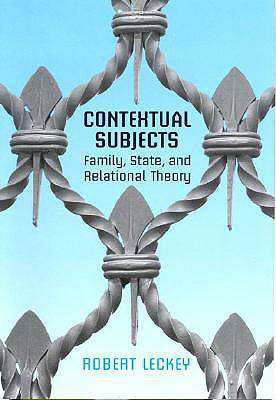
- Afhalen na 1 uur in een winkel met voorraad
- Gratis thuislevering in België vanaf € 30
- Ruim aanbod met 7 miljoen producten
- Afhalen na 1 uur in een winkel met voorraad
- Gratis thuislevering in België vanaf € 30
- Ruim aanbod met 7 miljoen producten
Omschrijving
Law and legal discourse both presuppose and produce legal subjects. Views on the nature of the legal subject will constantly shift, therefore, with changes in the law. Contextual Subjects argues that a new view of the legal subject has indeed emerged and that it is now embedded in the social context and relationships. This claim is developed through a contrast of Canadian family law and administrative law as it was in the mid-twentieth century and as it is today.
Robert Leckey argues that it is not only the subject that is contextual. Legal discourse and adjudication have also become more contextual, making family law and administrative law themselves contextual subjects. Leckey bolsters this argument through the use of relational theory, a rich strand of feminist political theory that advocates a contextual method and seeks to promote constructive relationships that enable relational autonomy. Developments in family law and administrative law, therefore, exemplify the contextualism called for by relational theorists. Leckey points to the importance of contextualization, but he is not uncritical of relational theory, insisting that it should articulate more forcefully its normative vision of good relationships and offer clear recommendations in contested areas.
Contextual Subjects is the most thorough and sustained application of relational theory to legal examples to appear to date. It is unique in Canadian legal scholarship for the way it pairs family law and administrative law, and within legal scholarship in English for its integration of common law and civil law.
Specificaties
Betrokkenen
- Auteur(s):
- Uitgeverij:
Inhoud
- Aantal bladzijden:
- 368
- Taal:
- Engels
Eigenschappen
- Productcode (EAN):
- 9780802097491
- Verschijningsdatum:
- 16/02/2008
- Uitvoering:
- Hardcover
- Formaat:
- Genaaid
- Afmetingen:
- 161 mm x 231 mm
- Gewicht:
- 693 g

Alleen bij Standaard Boekhandel
Beoordelingen
We publiceren alleen reviews die voldoen aan de voorwaarden voor reviews. Bekijk onze voorwaarden voor reviews.











